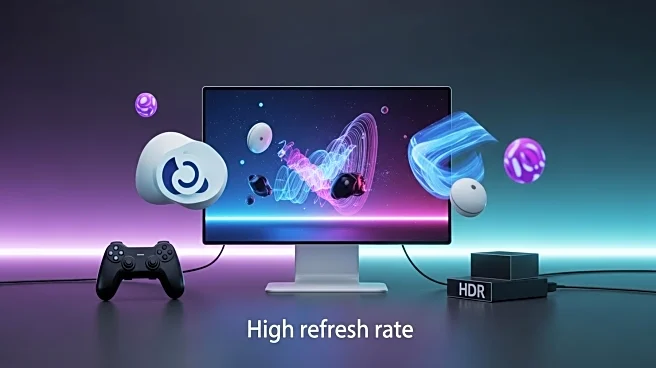What's Happening?
The Modos Paper Monitor and Dev Kit, a crowdfunded open-source solution, is revolutionizing e-paper displays by enabling refresh rates up to 75 Hz. Traditionally, e-paper displays are slow, often limited to 10 Hz, making them suitable only for text or still images. However, the Modos kit includes a custom driver board and display adapter that uses Caster, an open-source display controller, to enhance performance. This innovation allows users to utilize various e-paper panels, improving their refresh rates significantly. The kit supports multiple display modes, optimizing output for different purposes, and is compatible with a wide range of e-paper screens.
Why It's Important?
This development is significant for the technology industry, particularly for gaming and display technology. By increasing the refresh rate of e-paper displays, the Modos kit expands their usability beyond traditional applications, potentially transforming how these displays are used in gaming and other interactive media. The open-source nature of the project encourages innovation and customization, allowing users to adapt the technology to their needs. This could lead to new applications and markets for e-paper technology, enhancing its value and versatility.
What's Next?
As the Modos Paper Monitor and Dev Kit gains traction, it may inspire further advancements in e-paper technology and its applications. The success of the crowdfunding campaign indicates strong interest, which could lead to increased investment and development in this area. Users and developers may explore new ways to integrate high-refresh-rate e-paper displays into gaming and other interactive experiences, potentially leading to collaborations and partnerships within the tech industry.
Beyond the Headlines
The open-source approach of the Modos kit highlights the growing trend towards collaborative innovation in technology. By providing tools for customization and adaptation, the project empowers users to contribute to the evolution of e-paper technology. This democratization of technology development could lead to more diverse and creative applications, fostering a culture of shared knowledge and progress.









